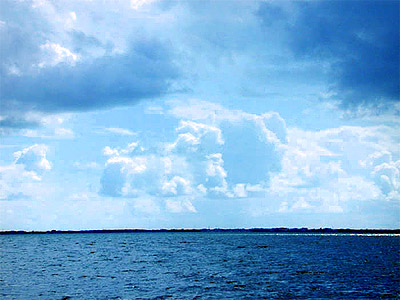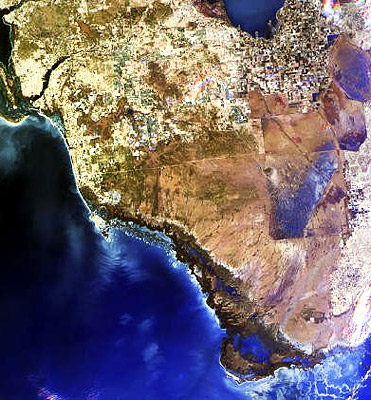Problems
Decrease of water quality and diversity due to human and natural causes

Water quality and biodiversity has been declining over the years due to human activity and natural causes. There was a major seagrass die-off during the summer of 1987 in the western portion of Florida Bay. Loss of seagrass resulted in an increase in turbidity in the northern regions of the bay. Further loss of seagrasses also lowered the populations of commercially important species such as juvenile pink shrimp, snook, and red drum.
Today, conditions continue to decline with high turbidity, phytoplankton blooms, and population declines of fish and bird species.

Management
Research is ongoing to determine proper management practices
Florida Bay provides an important nursery ground for a variety of fish and invertebrates, including those of recreational and commercial value. This resource is a valuable to the entire south Florida ecosystem and should be protected. Research is working to identify the problems and determine proper management practices to improve the health of the Florida Bay region.

Glossary terms on page:
biodiversity: in an ecosystem, variability among living organisms from all sources, sometimes measured by the total number of species or other taxonomic groupings, and their relative abundances.
turbidity: measurement of water clarity, turbidity increases when more light is scattered by particles suspended in the water.
phytoplankton: microscopic plants that depend upon water currents for transportation, primary producers in aquatic environments.
population: a group of interacting individuals of the same species, area, or community.
ecosystem: a community, including all the component organisms, along with the environment, forming an interactive system.